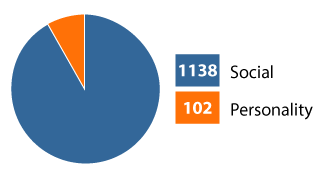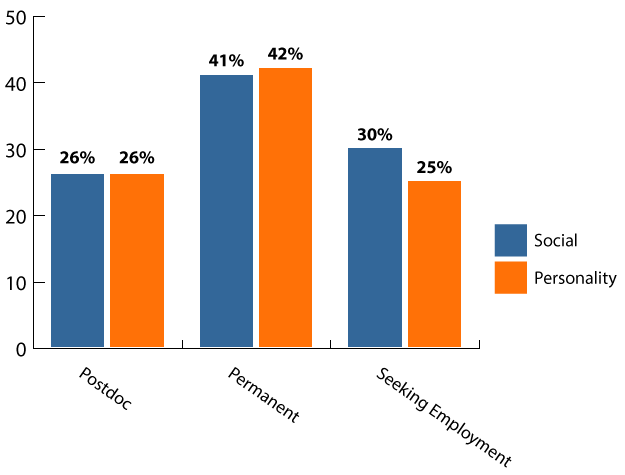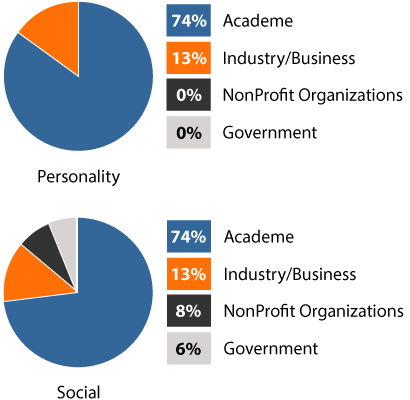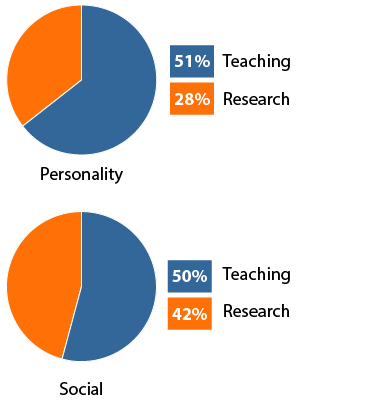This annual report on the employment of recent PhDs is part of SPSP’s continuing analysis of the field. This information is useful to students considering attending graduate school, those in a graduate program who may wish to tailor their training to particular opportunities, and graduate advisors devising training. The data below are from the NSF's survey of earned doctorates*.
In the 5 years between 2010 and 2014, 1138 PhDs were earned in social psychology and 102 in personality.

Graduates completed the survey at some point between July 1 and the following June 30 of the year they received their degree. They reported on their employment prospects for the following year.
This survey differentiated between 3 outcomes: postdoc position (defined as a temporary position to gain additional education/training in research), permanent employment, and seeking employment. Fully 68% of personality PhDs and 67% of social PhDs had already secured a postdoc or permanent position post-PhD. Of those still seeking employment, 25% were personality psychologists and 30% were social psychologists. More specifically, among those who were employed, 26% of personality and 26% of social psychologists had secured a postdoc.

Among the 42% of personality and 41% of social psychologists with permanent employment, the breakdown was:

For personality psychologists, the primary activity in their job for 51% was teaching, followed by research for 28%. For social psychologists, the primary activity was more evenly split, with 50% reporting teaching and 42% reporting research.

*From NSF regarding methods of data collection: The unit response rate is 100%, which means we collect “some” information about everyone. The minimum collected about everyone: doctoral degree type, doctoral field of study, degree date (month/year), and institution. Item-level response rates are reported in Appendix Table 4 of the Technical Notes to the Doctorate Recipients from U.S. Universities report, at this link: http://www.nsf.gov/statistics/2016/nsf16300/technotes.cfm




